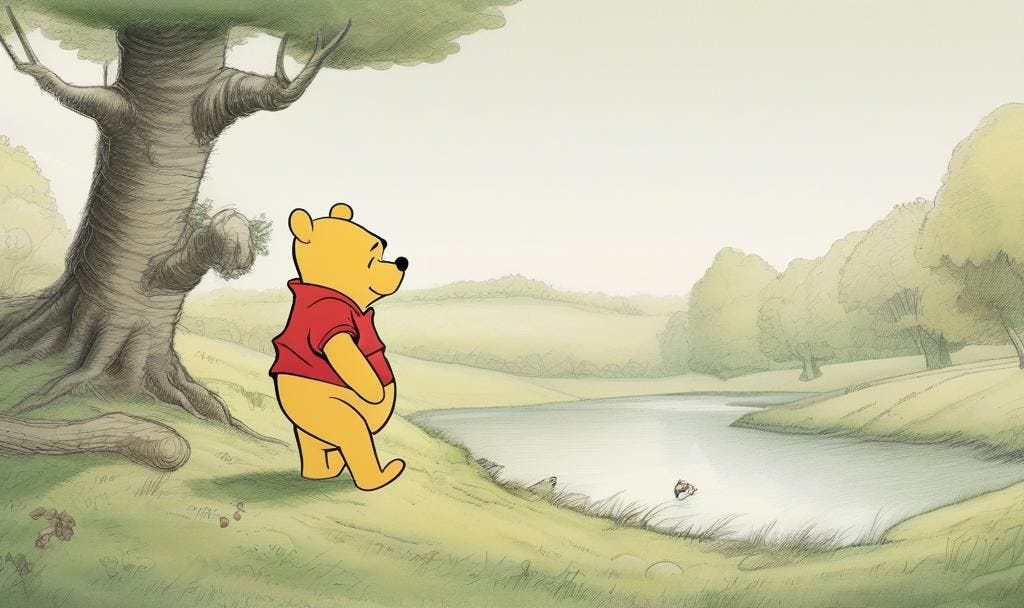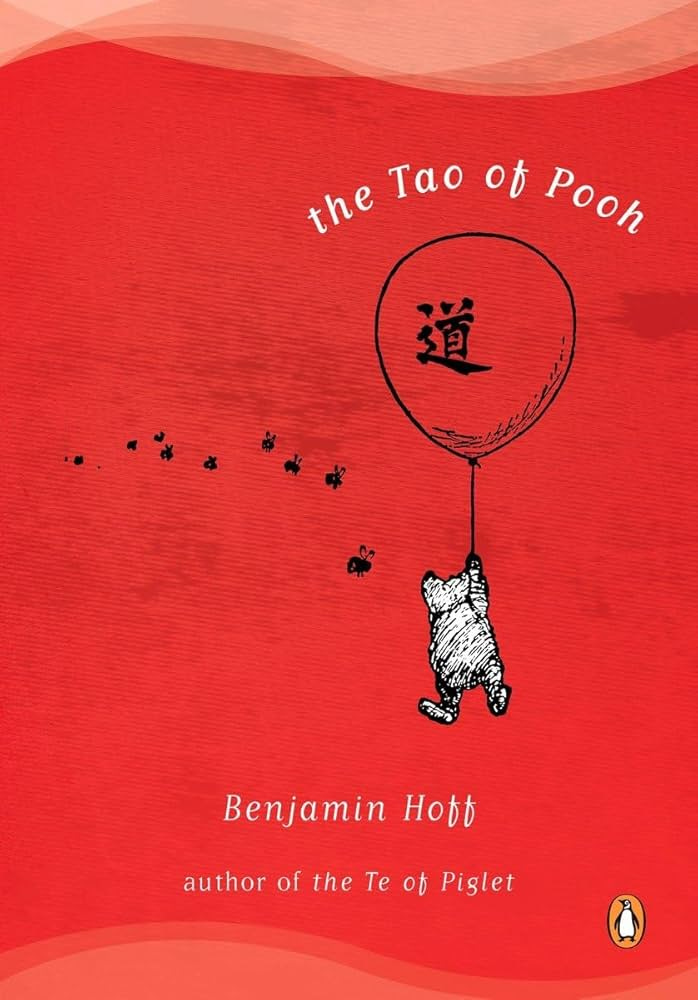Yesterday morning I finished reading The Tao of Pooh by Benjamin Hoff - easily the best $1.50 I’ve ever spent at a thrift store. As the book’s title suggests, it explains the principles of Taoism through Winnie the Pooh.
According to Taoism, our universe operates with natural laws, and when we live and operate in harmony with those natural laws, we can find peace, happiness, and success. Taoists believe that anyone can tap into “the Way” at any time.
While reading The Tao of Pooh I noticed a number of principles that can be applied to brand-building. Let’s explore!
Observing What Is with P’u: The Uncarved Block
Hoff begins by explaining the Taoist principle of P’u, roughly translated to ‘the uncarved block.’ He states that “The principle of the Uncarved Block is that things in their original simplicity [(natural beauty and function)] contain their own natural power” (p. 10). He explains further that appreciating the natural and intrinsic power of something requires one to be open to “the clear reality that Things Are As They Are” (p. 39) and “to recognize What’s There” (p. 43).
If we can notice what is, the natural beauty and function of what already exists, then we can access the power that exists there. This type of noticing is a skill–the skill of observation. Our minds are really good at labeling (judging) the things we observe; the process of observing + labeling often happens quicker than we’re consciously aware of. The skill of observation asks us to practice noticing what is without wishing / expecting / forcing it to be something else, and to find the strength that exists there.
For a brand, this could look like noticing that your top-selling product is not necessarily the one you want or expect to get the most attention, but going with it; it could look like reconnecting with and amplifying a core facet of your identity; or it could mean evolving to deliver your brand’s uniqueness in new mediums.
Finding Uniqueness via Inner Nature
Uniqueness is the MVP of branding. To build a successful brand, you must identify and utilize what makes you unique - this is your power. Your brand’s uniqueness is what makes your brand
stand out among your peers / in your market
recognizable & memorable in the minds of consumers
valuable & leaving consumers wanting more
Uniqueness is not something that exists outside of your brand, though. It’s helpful and important to look outside of your brand to understand your market, peers, and what consumers need, or even to find inspiration, however you won’t find your brand’s uniqueness in those places. It comes from within.
Hoff explains that the natural power stemming from what is can be referred to as Inner Nature. He states, “The thing that makes someone truly different–unique, in fact–is…Inner Nature” (p. 37-38). “Everything has its own place and function…When you know and respect your own Inner Nature, you know where you belong. You also know where you don’t belong” (p. 40-41). He goes further to say, “What we need to do is recognize Inner Nature and work with Things As They Are” (p. 50), which “…starts with recognizing who we are, what we’ve got to work with, and what works best for us” (p. 57).
Going through the exercise of defining your brand’s identity, uniqueness, strengths, and opportunities, is always a worthwhile endeavor. Refer to my most recent post for how you can define who your brand is, what your brand has to work with, and what works best for you–there are some questions there that may be helpful for defining these aspects of your brand’s Inner Nature, and distilling your brand’s uniqueness.
Wu Wei: Work Smarter, Not Harder
Operating with Taoist principles and following “the Way” means working smarter, not harder. Hoff eloquently says, “The Wise are Who They Are. They work with what they’ve got and do what they can do” (p. 64). He goes on, “When we learn to work with our own Inner Nature, and with the natural laws operating around us, we reach the level of Wu Wei. Then we work with the natural order of things and operate on the principle of minimal effort” (p. 69). To access the principle of minimal effort, he says, “We simply need to believe in the power that’s within us, and use it. When we do that, and stop imitating others and competing against them, things begin to work for us” (p. 120-121).
When brands make time to know themselves, by observing what is and their inner nature, then they can define their uniqueness and distill the opportunities that exist in front of them. When brands are equipped with knowing + uniqueness + opportunities, then action becomes easy / the path forward becomes clear / brands can enter their own version of flow state. Burberry exemplified this with their recent tea-making video series on TikTok, and Ogee is a great example of a brand who knows themselves and the opportunities in front of them.
The Tao of Branding as Alchemy
“...Once we see what the situation is and what we can do about it, we need to utilize everything we find along the way in order to accomplish whatever is required. More often than not, the things we need are there already; all we have to do is make use of them” (Hoff, p. 124).
As a Brand Alchemist, I would translate this to:
Understand: Know yourself as a brand. Observe, get curious, collect all the data (qualitative and quantitative) for a wholistic view of what is.
Distill: Identify the most important & impactful tools, methods, mediums, facts, insights for what could be.
Alchemize: Create! Take action! Equipped with wholistic understanding of what is and what could be, use everything ya got and DO something with it, MAKE something out of it. (And of course, have fun with it.)
Looking at your brand from these perspectives can be challenging when you’re in it–in the weeds of the day-to-day. Sometimes it’s helpful to have someone with an outside perspective take a look at your brand to identify its strengths, uniqueness, opportunities, and flow-paths forward. Lucky for you, this is exactly what I love to do. If what I’ve shared here resonates, then I’d love to work with you :)
Now please ponder and enjoy this song from the ever-wise Winnie the Pooh (Hoff, p. 58):
“How can you get very far,
If you don’t know Who You Are?
How can you do what you ought,
If you don’t know What You’ve Got?
And if you don’t know Which To Do
Of all the things in front of you,
Then what you’ll have when you are through
Is just a mess without a clue
Of all the best that can come true
If you know What and Which and Who.”


